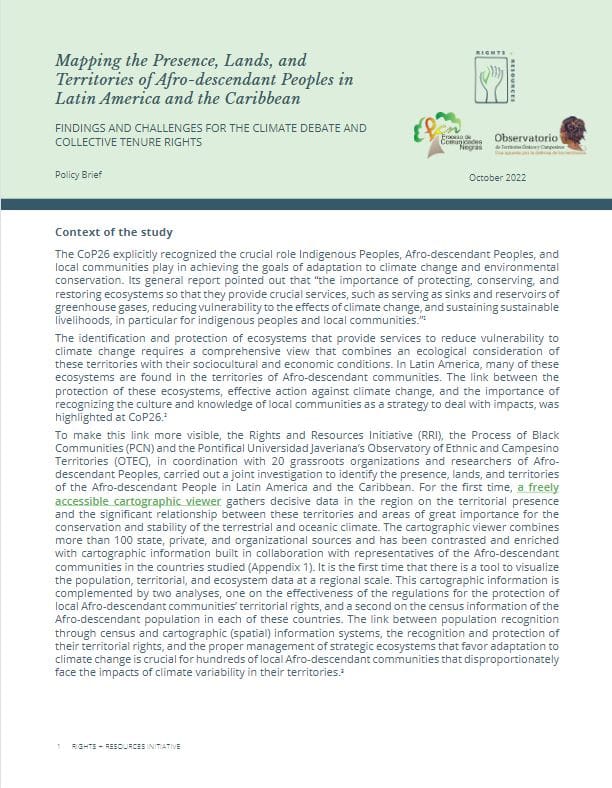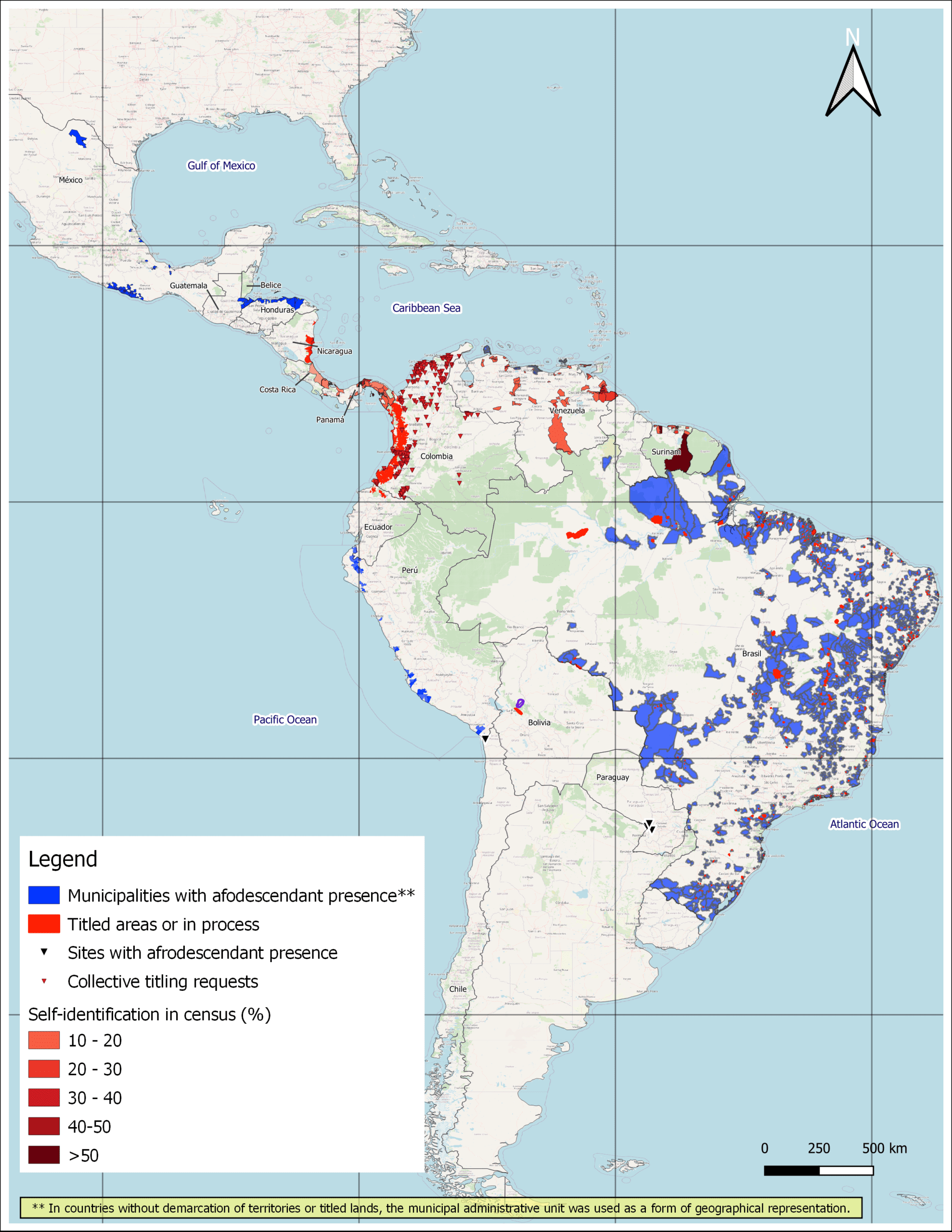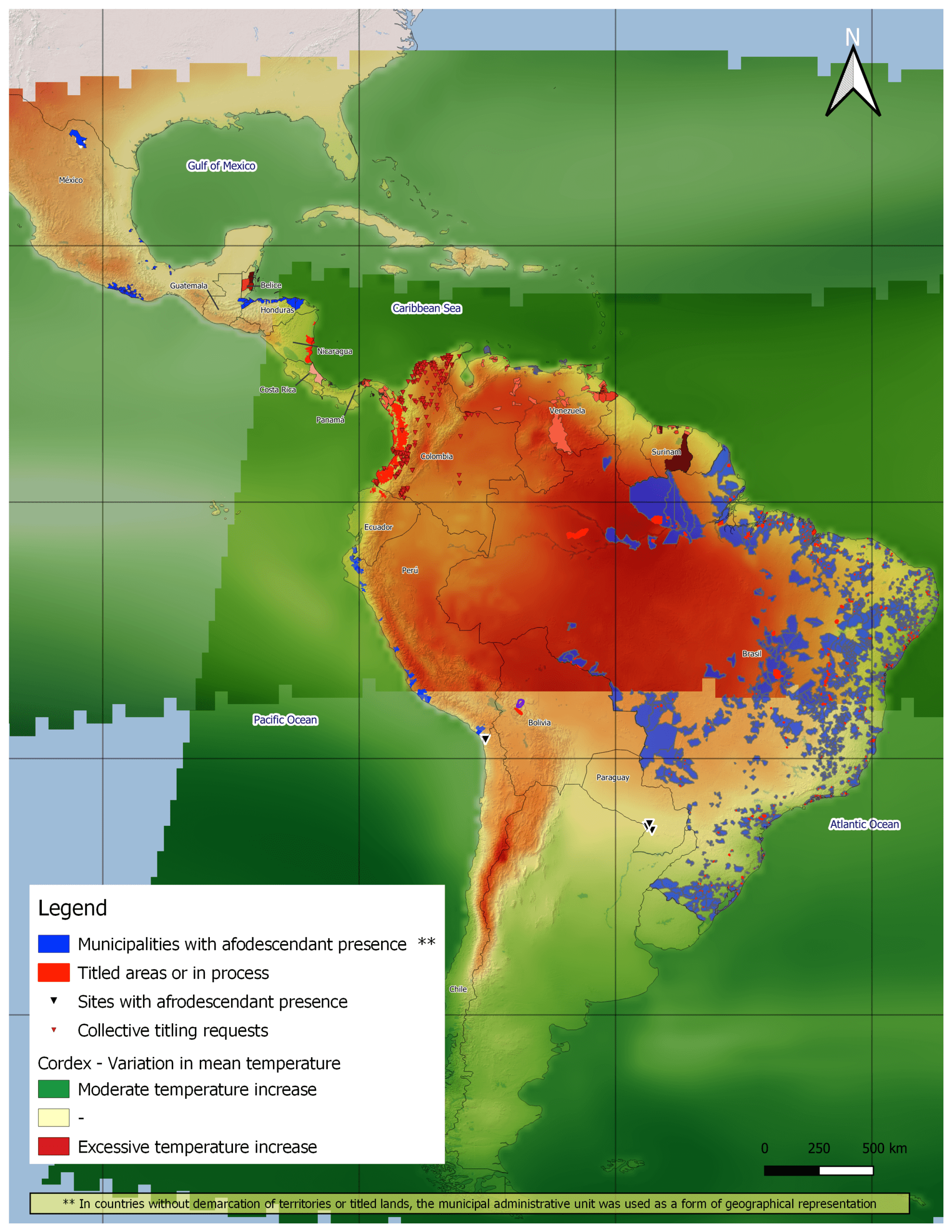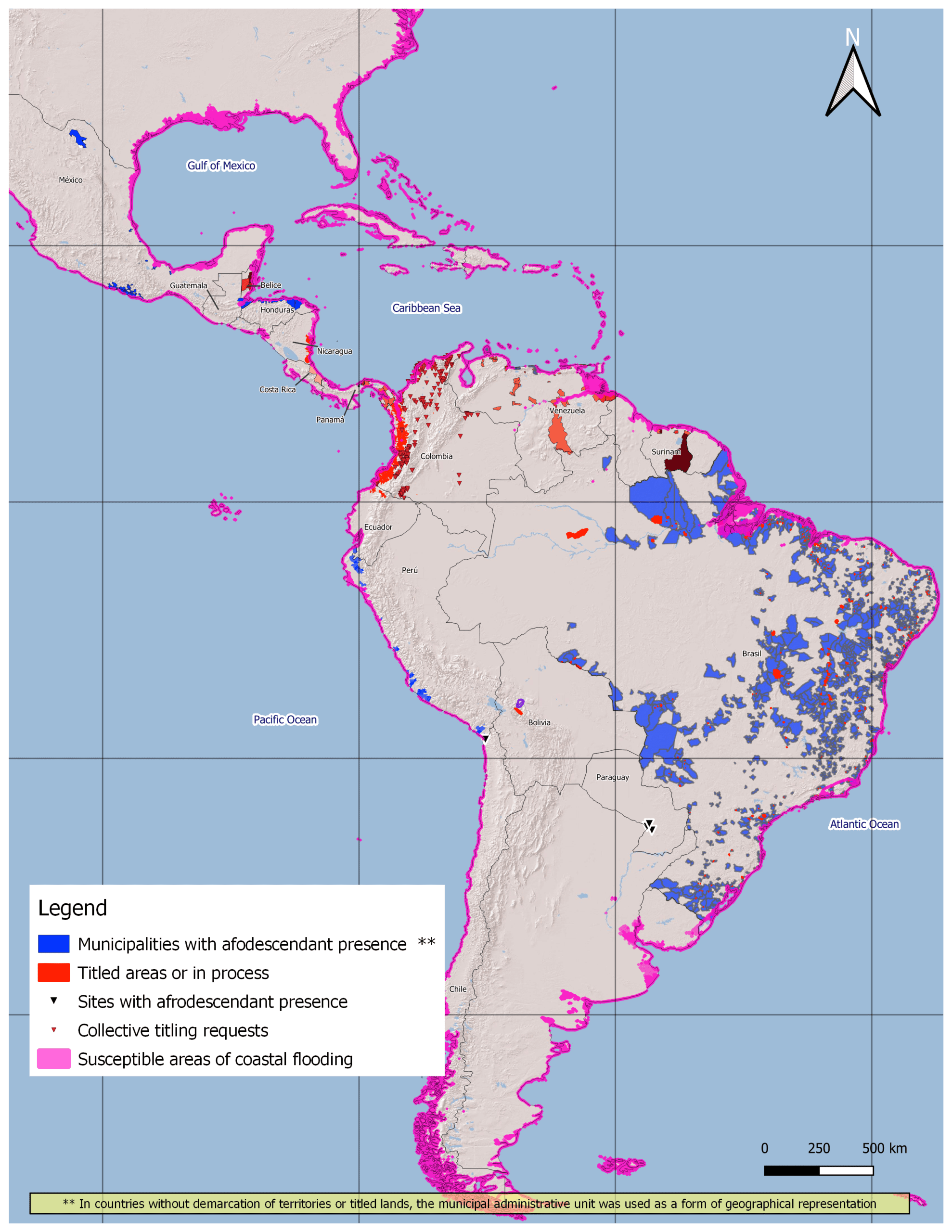Date: November 1, 2022
In coordination with 20 grassroots organizations and researchers of Afro-descendant Peoples, RRI, PNC, and OTEC carried out a joint investigation to identify the presence, lands, and territories of the Afro-descendant People in Latin America and the Caribbean. For the first time, a freely accessible cartographic viewer gathers decisive data in the region on the territorial presence and the significant relationship between these territories and areas of great importance for the conservation and stability of the terrestrial and oceanic climate.
https://doi.org/10.53892/ANVH3601




 The cartographic viewer can be seen through
The cartographic viewer can be seen through